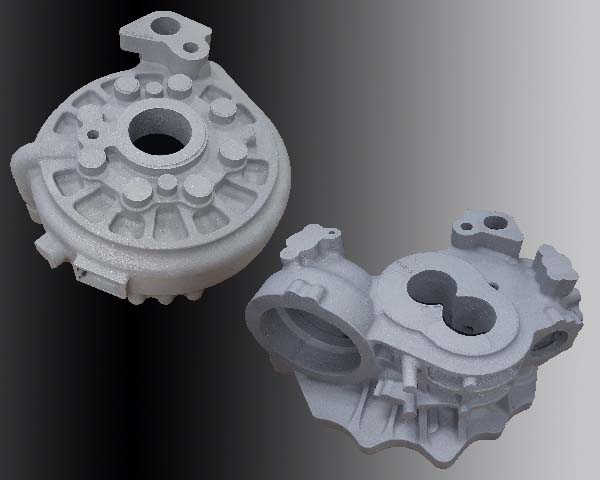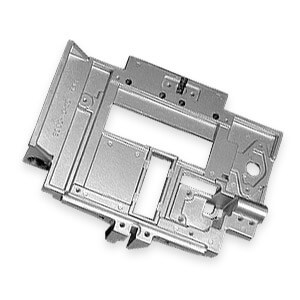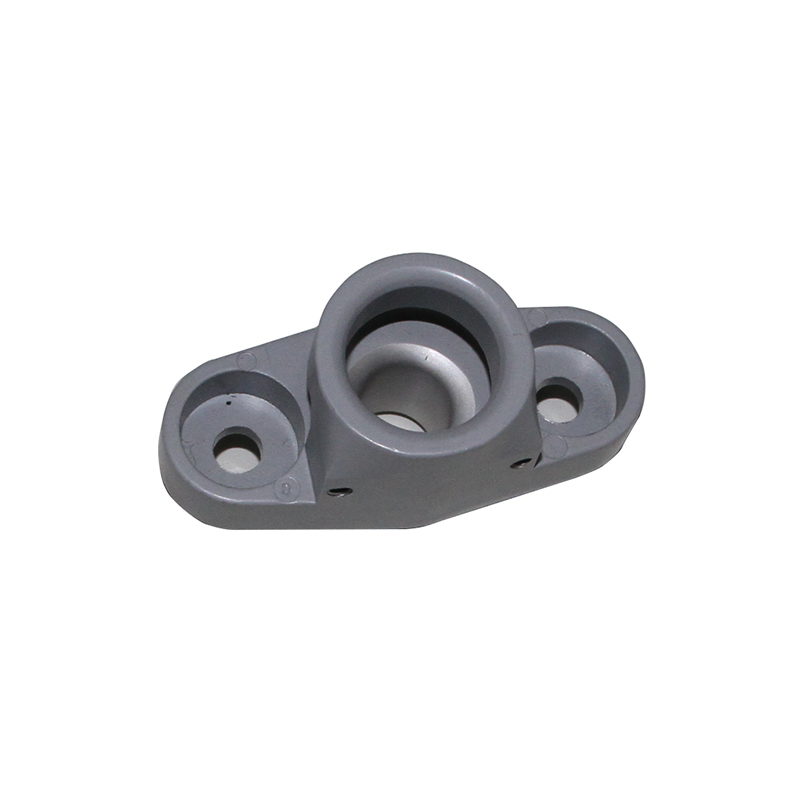Tips for selecting a trusted Aluminum Casting Company with credibility
The Function of Aluminum Foundries in Progressing Lightweight Manufacturing Solutions
Light weight aluminum factories significantly contribute to the development of lightweight production options. Their cutting-edge casting modern technologies generate high-strength, light-weight parts necessary for markets such as vehicle and aerospace. This innovation not just improves item efficiency but also promotes sustainability via the usage of recycled products. As these factories adjust to emerging innovations and techniques, they lead the way for future advancements in manufacturing performance and ecological responsibility. What lies in advance in this transformative trip?
The Advantages of Lightweight Products in Production
As markets significantly seek performance and sustainability, the fostering of lightweight products in manufacturing has become an important method - aluminum casting. These materials, especially light weight aluminum and compounds, supply various benefits that improve manufacturing procedures and item performance. Primarily, their reduced weight adds to reduce power consumption throughout transportation and procedure, bring about considerable price savings
Light-weight materials promote the style of more complicated geometries, allowing for greater advancement in item development. This versatility typically results in enhanced performance and performance, catering to the evolving demands of modern customers.
In addition, making use of light-weight materials can enhance the longevity of items because of their resistance to deterioration and exhaustion. This sturdiness not just lowers maintenance prices but likewise supports sustainability campaigns, as longer-lasting products contribute to much less waste. To summarize, the advantages of lightweight products are critical in driving performance, advancement, and environmental responsibility in manufacturing.
Developments in Aluminum Casting Technologies
Current improvements in aluminum spreading modern technologies are revolutionizing the production landscape, specifically in the manufacturing of lightweight components. Innovations such as high-pressure die casting and vacuum die casting have greatly improved the accuracy and surface area coating of light weight aluminum components - Aluminum Casting Company. These approaches permit for the development of intricate geometries while lessening product waste and enhancing mechanical properties

In addition, the application of real-time tracking systems assures quality assurance throughout the casting procedure, causing even more consistent product end results. Jointly, these technologies not only enhance the performance of aluminum elements however additionally support the market's change in the direction of more lasting manufacturing methods.
Applications of Aluminum Elements in Various Industries
While light weight aluminum elements have long been utilized in various markets, their flexibility and lightweight homes remain to drive cutting-edge applications throughout sectors such as automobile, aerospace, and building. In the automotive market, light weight aluminum is progressively used for engine blocks, wheels, and body panels, enhancing fuel performance and efficiency. Aerospace suppliers take advantage of aluminum for aircraft structures and parts, maximizing its strength-to-weight proportion to boost fuel economic climate and haul capability.
In the building sector, light weight aluminum is preferred for window frameworks, roofing, and architectural aspects, providing resilience and resistance to rust while decreasing overall building weight. Additionally, the electrical and electronics markets benefit from aluminum's conductivity and light-weight nature, using it in circuitry, rooms, and warmth sinks. These diverse applications highlight the essential duty of aluminum parts, which not only satisfy sector demands but also contribute to improvements in product style and capability across numerous fields.
Sustainability and Energy Efficiency in Aluminum Foundries
The light weight aluminum shop industry plays an essential function in promoting sustainability and power effectiveness, particularly as need for lightweight parts remains to grow throughout various sectors. Factories are increasingly taking on environmentally pleasant methods, such as utilizing recycled light weight aluminum, which substantially decreases power consumption and greenhouse gas discharges compared to primary aluminum manufacturing.
In addition, developments in casting modern technologies improve power efficiency by enhancing the melting processes and minimizing waste. Strategies like die spreading and financial investment spreading enable exact material use, minimizing excess and scrap.
Additionally, many factories are investing in renewable resource sources to power procedures, better lowering their carbon impact. Implementing energy management systems enables shops to check and improve power usage, guaranteeing they run at peak performance.

Future Fads in Lightweight Manufacturing Solutions
Exactly how will emerging technologies form the future of light-weight production remedies? Technologies such as advanced materials, automation, and additive manufacturing are readied to redefine manufacturing procedures. The integration of smart production innovations, including the Net of Points (IoT) and artificial intelligence (AI), will certainly allow real-time monitoring and optimization, improving performance and decreasing waste.

As sustainability continues to be an extremely important problem, light-weight services will increasingly focus on reusing and reusing materials, aligning with round economy principles. This evolution in lightweight manufacturing will certainly not only enhance item performance yet likewise add to environmental objectives, making sure that the industry remains competitive in a rapidly altering market landscape.
Frequently Asked Concerns
Exactly How Do Light Weight Aluminum Foundries Ensure Quality Assurance in Manufacturing?
Aluminum foundries assure high quality control in manufacturing via rigorous screening, standard procedures, and constant surveillance - Aluminum Foundry. They execute advanced modern technologies and proficient employees to preserve uniformity, lower problems, and meet market criteria throughout the manufacturing process
What Are the Key Challenges Faced by Aluminum Foundries?
Aluminum factories face challenges such as changing basic material costs, preserving manufacturing efficiency, making sure regular high quality, adjusting to technological advancements, and conference ecological regulations, all of which influence their overall functional effectiveness and competitiveness out there.
How Does Aluminum Recycling Effect Foundry Operations?
Light weight aluminum reusing significantly boosts factory operations by minimizing basic material prices, lessening energy usage, and reducing environmental impact. This lasting practice makes it possible for shops to boost performance while satisfying raising need for light-weight, high-performance aluminum items.
What Abilities Are Needed for Employees in Aluminum Foundries?
Workers in aluminum factories require abilities in metallurgy, machining, quality assurance, and safety techniques. Efficiency in operating equipment, comprehending alloy residential properties, and problem-solving are additionally vital for reliable manufacturing and maintaining high safety and security standards.
How Do Aluminum Foundries Manage Waste Management?
Light weight aluminum factories handle waste via reusing scrap steel, making use of reliable waste partition methods, and sticking visit our website to environmental laws. They execute sustainable techniques to minimize land fill payments, ensuring that harmful products are dealt with sensibly.
Light weight aluminum factories substantially add to the advancement of light-weight manufacturing options. Current advancements in light Visit Website weight aluminum spreading technologies are changing the production landscape, especially in the production of light-weight components. While aluminum elements have long been made use of in different markets, their adaptability and light-weight homes proceed to drive cutting-edge applications throughout markets such as auto, aerospace, and construction. Furthermore, the electrical and electronic devices markets profit from light weight aluminum's conductivity and light-weight nature, using it in electrical wiring, units, and heat sinks. The light weight aluminum factory market plays a crucial duty in advertising sustainability and power effectiveness, particularly as need for light-weight components proceeds to grow across numerous markets.